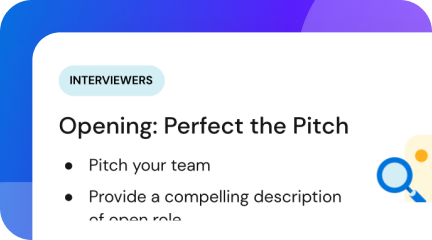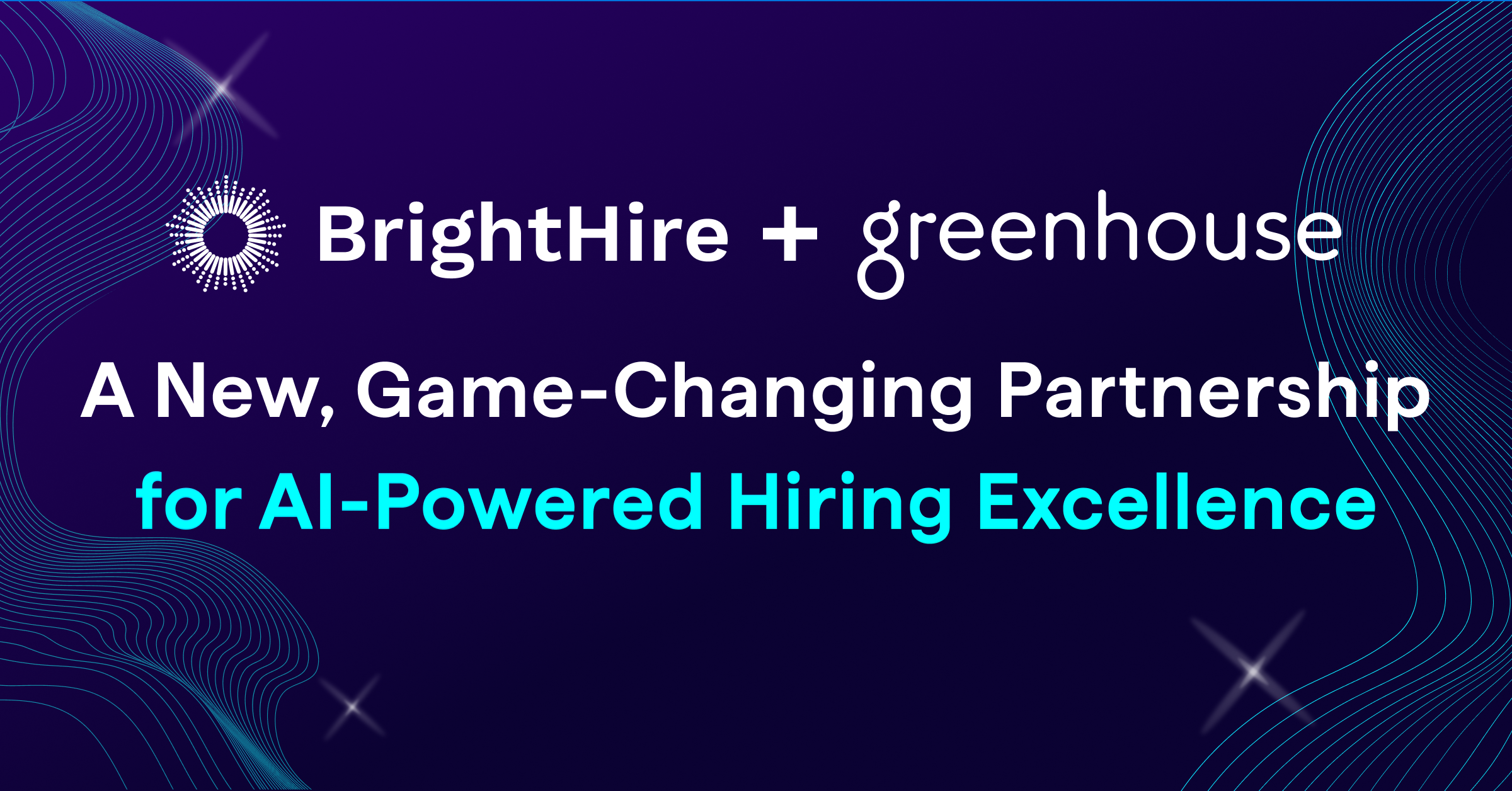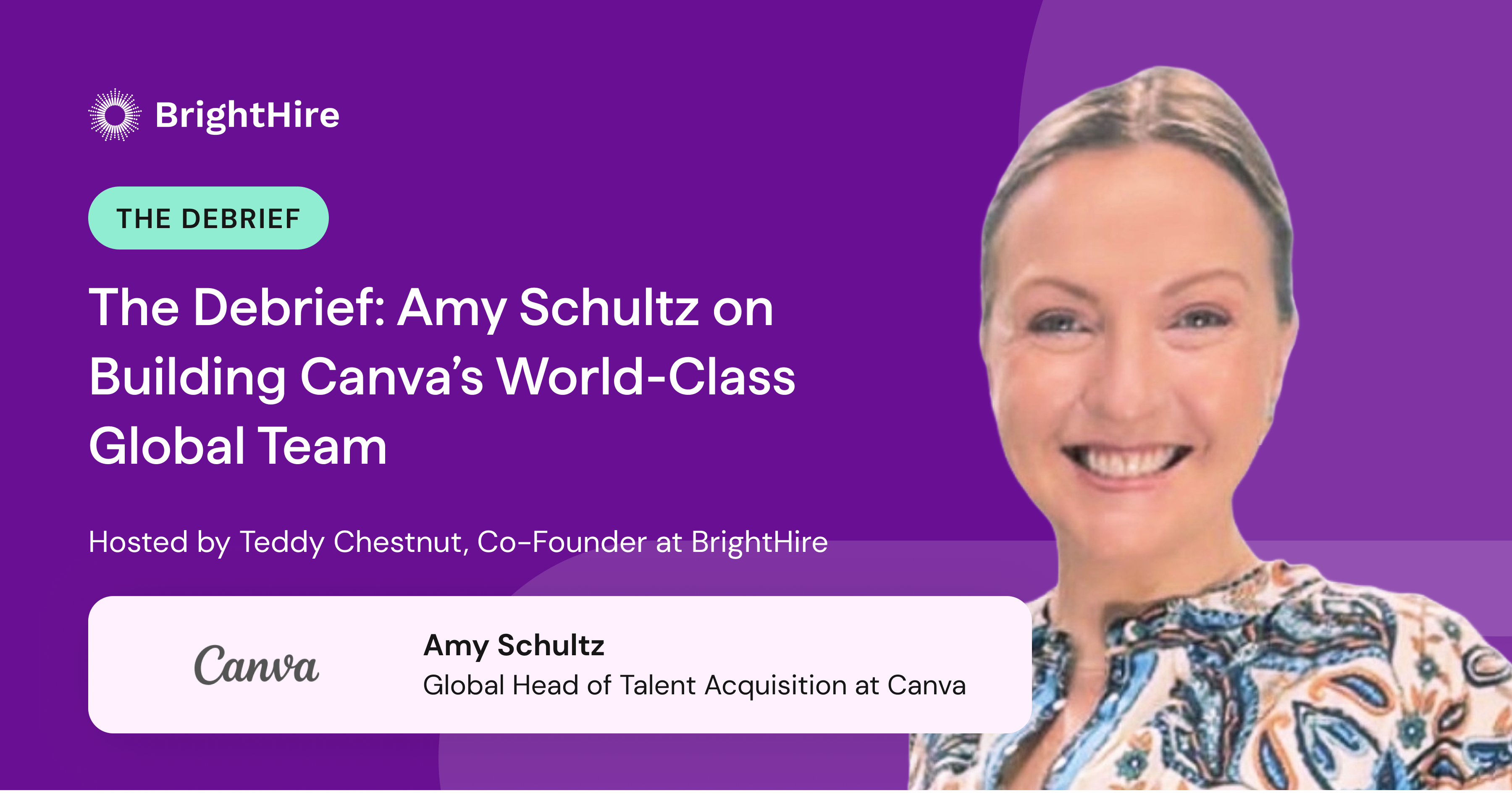Business development managers are crucial to the success of a sales org, and must possess a combination of important qualities to adequately do their job. BDMs should have a solid understanding of your market, tenacity, empathy, and even creative problem-solving.
Identifying these qualities in a candidate is all about asking the right questions. The business development manager interview questions that we’ve laid out below can help you identify great candidates and welcome a growth-minded professional to your team.
Standard Business Development Manager interview questions
Before we get to the challenging, strategic questions that will show off both a professional and a personal growth mindset, first cover the basics. Beginning with a few standardized questions will help your candidates settle down into the interview environment.
1. What first drew you towards business development?
This evergreen question is a good way to get your candidate started by letting them tell their story and communicate their enthusiasm about the role. If you’re interviewing a candidate who’s looking to enter business development from another field, it’s also an excellent opportunity for them to explain the reasoning behind the shift.
2. What are some of the best growth projects you’ve been a part of, or led, before?
This question can give you some insight into your candidate’s experience. It will also reveal the level of seniority they’ve held in past projects. How they quantify their “best” projects, in particular, will be revealing. For example, do they consider the “best” growth projects to be the ones that brought in the most qualified leads? The ones that revealed an unexpected new growth territory? Or just the ones with the best team spirit?
3. What are some of the tools you rely on to do your job?
This is a logistical question used for finding out how comfortable your candidate is using business development software and finding out if their usage experience has any crossover with items in your own tech stack.
Once you’ve set the playing field with these foundational questions, it’s time to put your candidate through their paces by asking questions that require your candidate to think harder and demonstrate the breadth of their experience.
4. What’s the biggest mistake you think our company could make in our approach to business development in the next five years?
This question assesses curiosity and proactivity—two qualities required in a research-driven role like business development (they’re also key attributes in any growth-minded personality). A good candidate will have been curious and proactive enough to research your company before sitting down with you, and this question will allow them to bring the information they’ve discovered to bear.
The question also assesses market knowledge. A good business development manager needs to have strong knowledge of buying patterns and market conditions in your industry, and this question gives them the opportunity to show off what they know. For that reason, the question is also a great way to assess communicative ability. It gives you a good opportunity to observe the clarity and skill with which your candidate expresses themselves.
What to listen for:
Statistics and data analysis. Generalized knowledge of markets is good, but a candidate who can handle statistics and data to emphasize their point is even better. The best candidates will understand how vital data is in good market analysis, for everything from understanding industry trends to price optimization.
Practicalities. Take care to note if your candidate uses this answer to relay a series of business development theories or if they offer practical strategies. A candidate that answers “We should target emerging markets” is showing they grasp the basics, but one who suggests “We should target emerging markets by building partnerships with local institutions” is demonstrating valuable practical acumen.
5. You get the wheels turning on a strategic partnership with a potentially perfect partner company, but you sometimes clash with your POC. How do you safely get the deal to completion?
The question assesses social adaptability. Business development managers need to be masters of their network and of business relationships in general when building connections with new potential partners. Sometimes they’ll find themselves having to work with people who are hard to get along with. A good business development manager candidate will have more than one approach to building rapport that they can use to strengthen their relationship with a POC (point-of-contact) who might be shy, offbeat, or uncooperative.
Because building a business relationship with someone you don’t get along with is tough, this question also allows your candidate to show evidence of grit. Business development demands an ability to roll with the punches and resolve a variety of challenges on the road to building a deal, which makes grit an important quality to screen for in a business development manager.
What to listen for:
Signs of a track record. Ideally, this question will prompt your candidate to launch straight into an anecdote about a time in the past when they dealt with this exact issue. If they’ve dealt with the issue successfully before, chances are they can do it again.
Suggestions of empathy. When talking about the hypothetical unfriendly POC, does the candidate talk at all about trying to understand their demeanor? In other words, do they seem interested in why your hypothetical POC might be acting the way they are? A business development manager who does so is empathetic and empathy has been shown to lead to more sales and improved customer loyalty.
6. Describe a deal you walked away from, and explain your reasoning.
This question assesses integrity and commitment to quality. An experienced business development manager should know that no deal is better than a bad deal, otherwise they run the risk of underselling your company and your service.
The question also allows a candidate to demonstrate tenacity in the face of adversity. The story of your candidate’s experience with walking away from an agreement will presumably not involve them having dropped the deal at the first sign of trouble. The steps they took to try to salvage the situation, at the time or even afterwards, should reveal how determined they are to work through complications.
What to listen for:
Evidence of integrity. A code of business ethics is not only necessary for reasons beyond business; it’s good business too, as few people will want to do business with a company with a poor ethical record. If a candidate has been willing to walk away from an unethical deal, especially if the other terms of the deal in question were attractive, then they’re a keeper.
7. What problems might a growth-focused company encounter?
This question will give you insight into your candidate’s sense of value. Some prospective business development managers (particularly younger, less experienced ones) might be keen to impress upon you their philosophy of maximum-growth-all-the-time. But the best candidates will be more thoughtful about where the best growth happens, and will focus on finding high-potential prospects that can provide value in the long-term.
It also gives the candidate the chance to demonstrate their understanding of the logistics of growth. A good candidate will make it clear when answering that they understand how paralyzing high customer acquisition costs can be for a business, particularly if churn is at anything other than a minimal level.
What to listen for:
The importance of retention. The cost of acquiring a new customer can reach up to five times that required to retain an existing customer. Taking care of existing customers also reduces the risk of rising churn rates. A candidate who understands the importance of retention, relative to both creating value and reducing churn, understands a fundamental tenet of business development.
8. If we told you that this interview wasn’t going that well, how would you react?
This question demonstrates how tough and growth-minded your prospective business development manager candidate really is. A growth mindset relies on curiosity and a desire to improve. The way a candidate answers this question will reveal the degree to which they are confident confronting uncomfortable information if it helps them improve their performance.
What to listen for:
Responsiveness. A bright candidate might find a clever way to deflect the question or defuse possible tension arising from it, but a truly growth-minded candidate will be eager to apply any feedback offered.
9. Describe a time when you were faced with bad data and how you solved the problem.
A candidate’s answer will show the extent of their data-literacy. Given that “data is the fuel for growth,” a business development manager who is not comfortable with data is likely to have a hard time. But not all data is good data. A data-literate candidate will be able to spot the difference between good data and bad data, and come up with a plan to move past the problems that bad data creates.
This question is also a great test of your candidate’s approach to problem solving. Enthusiasm about problem solving is a key aspect of a growth mindset in any context, and no less so in business development, where market conditions and customer requirements are liable to shift quickly.
The candidate’s answer will also show strength of character. Business development managers need to be able to blaze trails and take calculated risks when helping a company find new business opportunities. Do they trust their instincts in situations like these?
What to listen for:
Alternative strategies. What strategy did the candidate build to work around the bad data they encountered? This will clue you into how the candidate reacts in general when faced with less-than-optimal knowledge resources.
Emotional Tone. When describing the situation, does the candidate sound like they relished the challenge? Or do they sound like the very thought of the situation still stresses them out? Business development is a long road that requires tenacity, and a candidate who embraces a challenge is more likely to succeed than one who doesn’t handle them quite as well.
10. How would you approach a customer who was already piloting a competitor’s product?
This question gives the candidate a chance to demonstrate grit, confidence, and proactivity. Competitors exist in every industry, and successful BDMs will understand how to effectively identify the unique benefits of the product or service that they’re selling.
What to listen for:
A sound understanding of what prospects are looking for. Sales is ultimately about offering solutions to pain points, and the success of a BDM hinges on their ability to: 1. Identify and understand those paint points, and 2. Effectively communicate why the solution they are offering is uniquely positioned in the market to resolve those pain points.
11. Let’s say you’re in charge of mentoring new employees. What’s the biggest mistake you made in your career you’d want to make sure they didn’t make?
First and foremost, this question is a measure of your candidate’s candor and trustworthiness. Willingness to own past mistakes and be honest with others about them is a sign of trustworthiness, even a “mark of leadership.”
A candidate’s answer also demonstrates the extent of their willingness to teach and lead. The way they respond will demonstrate how enthusiastic they are about the prospect of having reports to take under their wing and mentor.
What to listen for:
Evidence of application. You can make yourself sound pretty courageous by admitting to a mistake, but the most important thing about any error or failure is how you use that experience to learn and improve. Consider how the response your candidate gives ties into their other answers. Have you seen evidence in their other responses that the candidate has learned from past experience?
12. How do you decide which deals are the most strategically impactful?
This question gives the candidate the opportunity to demonstrate their understanding of which factors are most important when evaluating different opportunities, and also that they possess sound decision-making abilities. One challenge faced by BDMs is prioritization—there’s always more to do than there is time in the day to do it.
What to listen for:
Ideally, the candidate will use this question as an opportunity to share specific examples of how they approach prioritizing certain deals over others. Listen for them to speak to specific factors that demonstrate an understanding of some of the factors that should be included in the equation: potential deal size, prospect growth trajectory, the opportunity to expand into new industries, and more.
13. What non-business field can a business development pro learn most from, and why?
This question will reveal some of your prospect’s general knowledge. Growth is based on continual learning, and this question reveals your candidate’s disposition towards gaining new knowledge and how they go about applying it.
The question also assesses how comfortable your candidate is with the contextual transfer of knowledge. Knowledge transfer has been called “a hallmark of true learning” and can generate insights that might otherwise remain obscure. Can your candidate identify ways in which knowledge from one field can improve outcomes in another?
What to listen for:
Detail. It’s simple enough for a candidate to observe that “Entertainment and business both are high-pressure environments and we can learn a lot from professional entertainers.” But a really inspiring answer to this question is one that goes into greater detail. Your candidate might choose music as their non-business field, explaining that “A singer’s pre-concert ritual can be great for psyching-up before a call, as it helps accustom you to the sound of your own voice.”
14. Picture a world in which baseball bats don’t exist. If you owned a sporting goods store, how would you pivot your approach to selling baseballs?
This classic ‘surreal scenario’ question assesses two different kinds of adaptability. Firstly, you’ll be able to see if your candidate can adjust to this curve-ball of a question, remaining composed and clear in their thinking. From there, you can observe how your candidate goes about pitching a product when the context around it has changed dramatically, adapting your service to a new set of (hypothetical) customer needs.
It also assesses commitment. Making customers feel valued is an important part of any retention strategy, and you can get a sense of a candidate’s drive based on how your candidate approaches keeping existing customers in the fold.
What to listen for:
Mentions of pain points. The easiest way to successfully answer this question is to find out what needs the customer has that the product can still fulfill. If a candidate asks questions to better understand the sports equipment store’s needs and pain points, then they are demonstrating a clear understanding of what it takes to save a deal.
15. Tell us about a deal that you lost that really stung.
This question provides the opportunity for a candidate to demonstrate humility and self-awareness. Lost deals are just part of the job, but how a BDM handles lost sales says a lot about their personality and outlook.
What to listen for:
The candidate’s answer should express some disappointment, without over-indexing on the failed deal itself. Most importantly, this question offers the candidate a chance to proactively analyze what went wrong with the deal, what could have been done better, and how the candidate adapted their approach after the experience.
16. What important details about the role have we not addressed yet?
This question, naturally, will say something about your candidate’s inquisitiveness. It allows your candidate to ask about any fundamentals they’re not sure about (team size, flexible working hours, health insurance provision etc.) but it also allows them to follow up on some of the other questions you might have asked to this point.
What to listen for:
Engagement with past questions. Not all great candidates will necessarily arrive at the end of the interview with lots of follow-up questions on their mind, but a candidate that revisits some of the areas so far discussed demonstrates positive engagement.
By providing the chance for open discussion to continue a little while longer, you are creating opportunities for building more synergy and understanding with a candidate. This rapport building will hopefully increase their incentive to ace the next stage of the application process (if there is one), and to ultimately come work with you.
Encouraging candidates to show, not tell
As you make your way through the interview process, feel free to adapt any of the business development manager interview questions highlighted in this post. What’s more important than specific questions is the logic driving them.
Effective interview questions should be founded upon specific qualities you’re looking for in your candidates. Great interview questions give your candidates space to sell themselves, giving you the opportunity to listen for evidence of the attributes that are the most important to the role.
This post is part of our series of high quality, insightful interview questions for in-demand roles. Other interview questions include:
• Account executive interview questions
• Project manager interview questions
• Marketing manager interview questions









